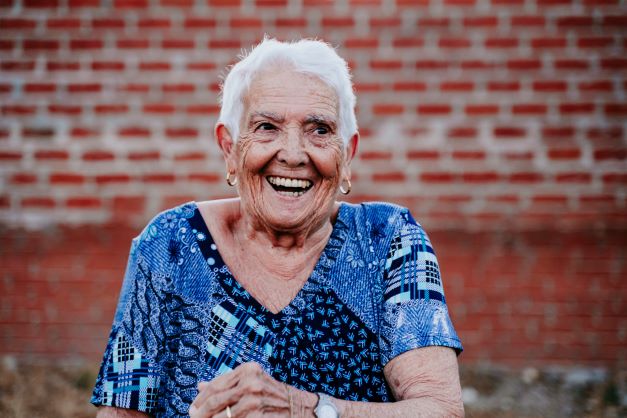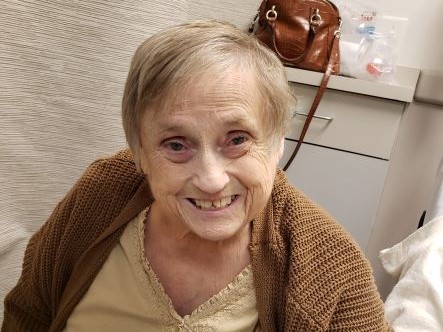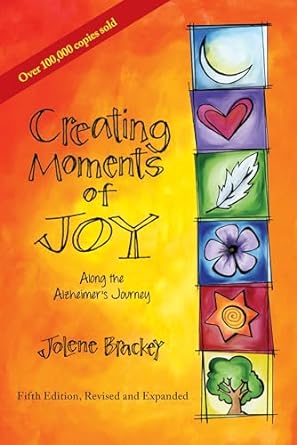Alzheimer’s Laughter
Have you ever noticed how much better you feel after laughing? It makes you feel happy and forget about your troubles and stress for a little while. Life is good; no worries at the moment.
People with Alzheimer’s need laughter! Think about your loved one; when was the last time you heard them laugh or saw them smile?
Alzheimer’s Laughter sayings
There are many famous sayings related to laughter.
- “We don’t laugh because we are happy; we’re happy because we laugh.” William James
- “There is nothing in the world so irresistibly contagious as laughter and good humor.” Charles Dickens
- “Laughing is, and will always be, the best form of therapy.” Dau Voire
- “A day without laughter is a day wasted.” Charlie Chaplin
- “A good laugh recharges your battery.” Anonymous
- “A little more laughter, a little less worry, a little more kindness, and a little less hurry.” Anonymous
It makes one think they may have realized something we haven’t.

Alzheimer’s Laughter is powerful!
Watch a video of a baby laughing, and even the grouchiest person can’t help but smile. Many people probably know that laughing makes you feel better, but it does much more.
- Studies have shown it has the power to boost immunity by decreasing stress hormones.
- Your whole body relaxes when you laugh.
- Blood flow increases and helps improve blood vessels.
- Pain levels decrease.
- Laughter also reduces fear.
- Dissolves tension and resolves conflict.
Humor can also help reduce agitation in someone with Alzheimer’s. In addition, shared laughter helps strengthen relationships and helps someone struggling with Alzheimer’s feel safe with friends and family.

Humor Changes
The sense of humor changes for someone with Alzheimer’s. As a matter of fact, it can be one of the early signs of Alzheimer’s. Many caregivers noted a change in their loved one’s sense of humor a few years before they realized their loved one had Alzheimer’s.
As their cognitive level declines, it becomes difficult for them to understand some types of humor, such as traditional jokes or satire.
For example, satire is a form of criticism that uses wit, irony, exaggeration, or ridicule and is often misinterpreted by someone with Alzheimer’s.
Slapstick is more of simple humor. To give you an idea of what slapstick is, some of the most famous slapstick were Charlie Chaplin, I Love Lucy, Tom & Jerry cartoons, and Home Alone.
Sometimes even those with advanced dementia laugh or smile at Slapstick humor. It is a go-to for many memory care units.

This video does a great job of explaining laughter and how it can make a difference!
Alzheimer’s Laughter is truly the best medicine.
Many health sites recommend laughing daily for physical and mental health. For those with Alzheimer’s, daily laughter can make a difference in their quality of life.
There is even laughter therapy for those with Alzheimer’s. For example, some nursing homes have clowns and comedians come in to put on comedy shows for their residents. These nursing homes significantly decreased agitation after starting the comedy shows.
Here is the link to an article on Laughter-on-call
When you think about it, it makes sense. You aren’t as irritable or agitated in a happy, funny environment. It is the same for someone with Alzheimer’s disease.
How do you add Alzheimer’s laughter into your day?
Talk about funny things that happened in your loved ones’ life.
Share funny memories with them, especially from their earlier years, since those memories last the longest.
You can sing happy songs from their younger days if you like to sing.
Act silly, and dance.
Remember, a smile is the beginning of a laugh.
Start the day with a smile.

Shelter of Calm:
Your Guide Through Dementia's Storm!
Is Dementia's chaos stealing your peace?
We're here to restore the calm, empowering you to confidently face each challenge.
Take the first step towards transformation now.

Loneliness & Laughter
I can tell you from my nursing home experience how sad and lonely many of the elderly are.
It doesn’t usually take much to bring a smile to their face. But a warm, genuine smile, a pat on the arm, or just sitting and talking for a few minutes goes a long way for someone struggling with Alzheimer’s.
That smile reminds them they are not alone and they are safe. And laughter, well that is like a great big old hug to them! It helps them feel connected to you. It helps them feel loved and wanted.
Make light of what is going on in the day. Joke around with them, but do be careful not to offend them. Some people with Alzheimer’s struggle to understand things and may feel the joke is on them or putting them down.
The more you smile and joke with them, the more comfortable they will feel with you. That increased comfort will lead to more compliance with whatever you need your loved one to do. Humor and laughter are the best medicine to get them to cooperate.
What a difference a smile makes.
I have a friend who has an incredible knack for making all patients feel happy and comfortable with her. For example, I have seen men refusing several caregivers to bathe and shave them. Yet she can walk in the first time meeting them and get them to wash and shave without fuss.
Her secret is humor. That humor becomes their common ground; they are comfortable and trust her immediately. While joking around, she has them in the shower, shaved, and dressed before they even realize what is happening.

Television & ALzheimer’s Laughter
Fortunately, we can now watch pretty much what we want to whenever we want to on our televisions. Some channels play old slapstick comedies.
Caregivers can find many shows on the TVland and ROKU channels. In addition, many people find the funny cat and dog videos on youtube to work well with their loved ones.
Many people with Alzheimer’s sit in front of a TV. It would be advantageous to put it on something that will make them laugh or smile.
Remember, as a caregiver, you set the tone for the day. A day with smiles and laughter will make a better day for both of you.
Creating Memories of Joy
This is an amazing book! This book is the number one book I recommend to families to learn the importance of laughter and good times. It helps family & caregivers better understand how to create moments of joy for you and your loved one during your dementia journey.
The Dementia Caregiver Blog Library
Activities, Advanced Directives, Agitation, Apathy, Approach, Apps for Caregivers, Basic Caregiving, Bathing, Bathroom Safety, Caregiver Burnout, Caregiver Compassion, Caregiver Emotions, Caregiver Help, Caregiver Loneliness, Caregiver Support, Cold & Flu Season, Communication Challenges, Dehydration, Dementia Complications, Dementia Doctors, Dementia Safety Home, Dementia Types, Dementia-Friendly, Dressing Issues, Driving Safety, Eating Problems, Fall Prevention, Family Help, Finances, Guns & Dementia, Harm Prevention, Healthcare, Help at Home, Hiding Dementia, Holidays, Hospice, Hospital Stay, In-Between Stage, Kitchen Safety, Laughter, Legal Healthcare, Marijuana use, Medication Tips, Music, Nutrition, Pain, Patience, Poop Problems, Relationships, Reminiscing, Routine, Safety, Sense of Purpose, Shadowing, Sleep Issues, Stages of Dementia, Sundowning, Television, Time Travel, Traveling, Toileting, Wandering
Exploring Caregiving Tools & Resources? Don't Forget to Check Out My Resource Page! 🌟

Hi, I’m Larea, a Certified Dementia Specialist and Registered Nurse with 30 years of hands-on experience helping dementia patients in various settings, from hospitals to nursing homes and hospice. Drawing on personal experiences with my family members and patients over the years, I’m here to help guide you on your caregiving journey.



0 Comments